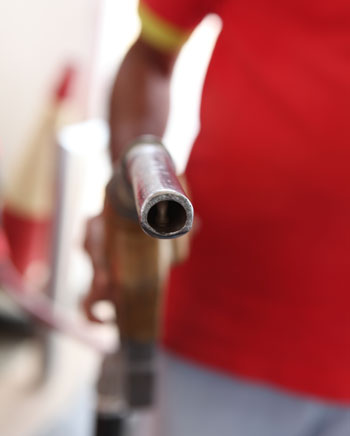“Big Opportunities in the GCC for Small and Medium Energy Companies” says AREF Energy
Few listed stocks in the Gulf have performed since the start of 2012 as well as AREF Energy Holding. The Kuwaiti firm invests in the oil and gas industry only in line with Islamic law (Shari’ah). Marcopolis looks behind the scenes of this exceptional energy company.
AREF Energy is ranked among the top Sharia-compliant Investment Holding companies in Kuwait which does investments in the oil and gas sector. AREF Energy was incorporated in 1996 as ‘Excellent Education Foundation Company’ to focus on the education sector in Kuwait. The company was listed on the Kuwait Stock Exchange in 2005 and was subsequently renamed in 2007 as ‘AREF Energy Holding Company’, with the altered mandate of investing in energy sector companies.
“There
are significant investment opportunities for the
Small and Medium companies in the Gulf. People should not stay shy of the region.”
When small is beautiful
“AREF Energy is a medium-sized company,” its Chairman, Walid K. Al-Hashash, said to Marcopolis in an exclusive interview. “Kuwait is a small country which cannot absorb all the money,” he added. This is why most of AREF’s investments (AREF Investment Strategy) are based outside mainly in MENA area.
The holding’s portfolio worth KD60.16 million is spread across 9 investments.
“We are a holding company, not a normal operational one, so we have a basket of investment, assets, and we carefully pick our investments in such a way that they can serve our subsidiary in Kuwait,” Al-Hashash explained.
In times of rallying oil prices and a rising cost base for the Hydrocarbon industry, identifying innovative companies is key to generate attractive rate of returns.
SynFuels International in the U. S. is one example of AREF’s investments abroad. AREF holds a quarter of the firm which developed a Gas-to-Liquid technology.
SynFuels developed a process to produce 95 octane fuel from natural gas. AREF also holds a majority share of 75% in Nordic.
Although the company’s name might signal that is is based in Scandinavia, Nordic is based United Arab Emirates, yet with European partners.
How does AREF evaluate whether or not a targeted company is a good investment?
Chairman Al-Hashah: “The oil and gas sectors expertise are represented in AREF Energy, so they have the know-how and they know the contacts. From this rich experience, we are reaching out for the right companies.”
However, AREF Energy does not regard its portfolio as stagnant but as a dynamic allocation of its assets.

“For holding companies, most of the revenue will come as proceeds upon exiting. After that, you reinvest, and so on,” said Al-Hashash.
Certainly Al-Hashah is also worried about the lack of political consensus which delayed and still delays the proper implementation of the $130 billion Kuwait Development Plan. The plan was adopted by the government in 2009 and 2010 but money is yet to be distributed.
At the same, AREF Energy’s financial reserves put the holding company in a comfortable position. They retain their own profits and they have maybe an excess of USD 50 Million, so they are self-financed and they don’t seek government approval to initiate any ventures, deals, or projects.
AREF Energy’s investment policy was received positively by agency Capital Standards.
On December 14, 2011 Capital Standards assigned, on a stand-alone basis, a first-time Corporate Credit Rating of “BB+” on an international scale and “BBB+KW” on a national scale to AREF Energy Holding Company. The outlook for the rating is Stable.
The rating could be higher if more of the investments were paying dividends. Capital Standards noted: “Only one investment of AREF Energy – Kuwait Energy Company – paid dividends from its FY2010 earnings. The dividend paying ability of the rest of the portfolio components is limited, and therefore, the core income of AREF Energy is primarily driven by net gain on sale of investments.”
Nevertheless, “Potential for a rating upgrade is limited in the medium term, unless the credit quality of the portfolio improves significantly and the company develops a long track record of profitable divestments,” Capital Standards said.